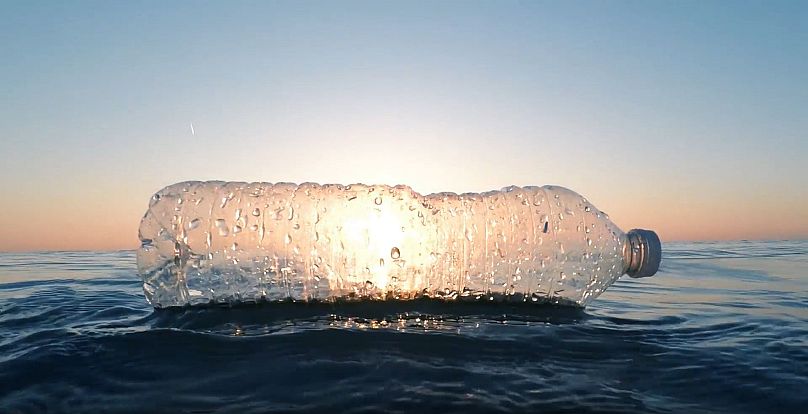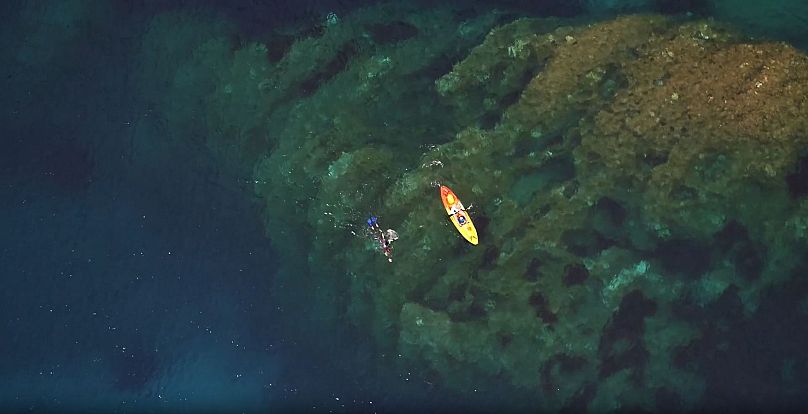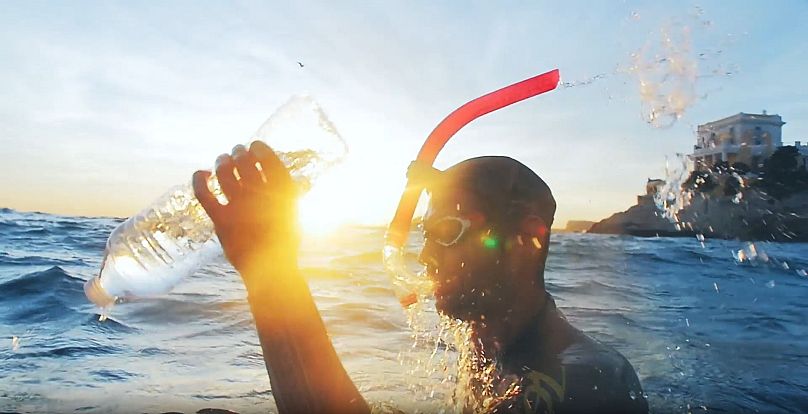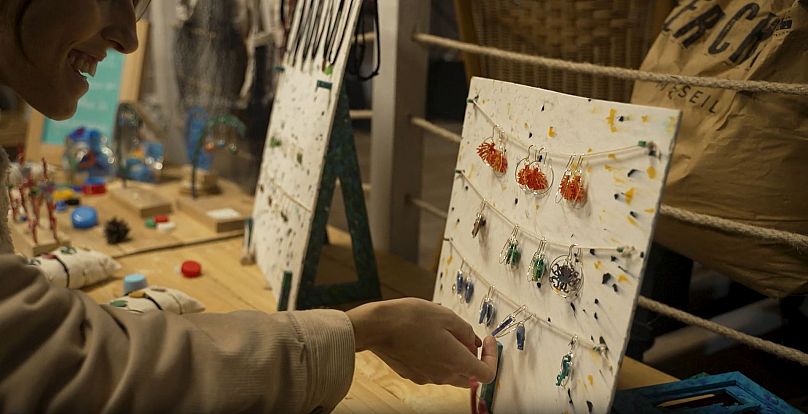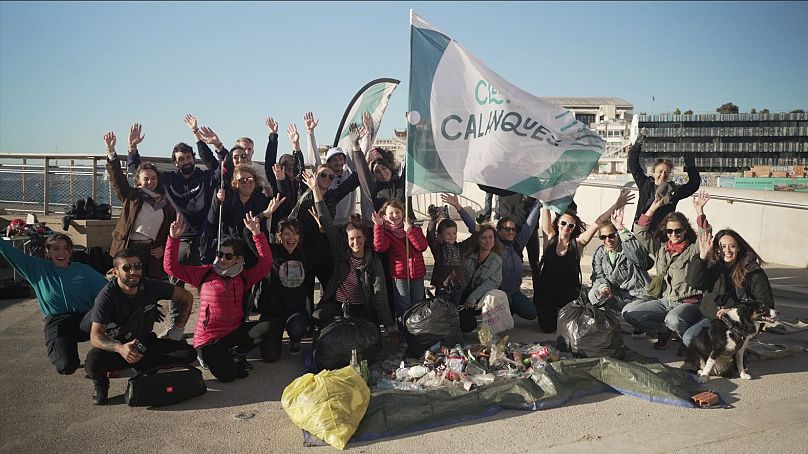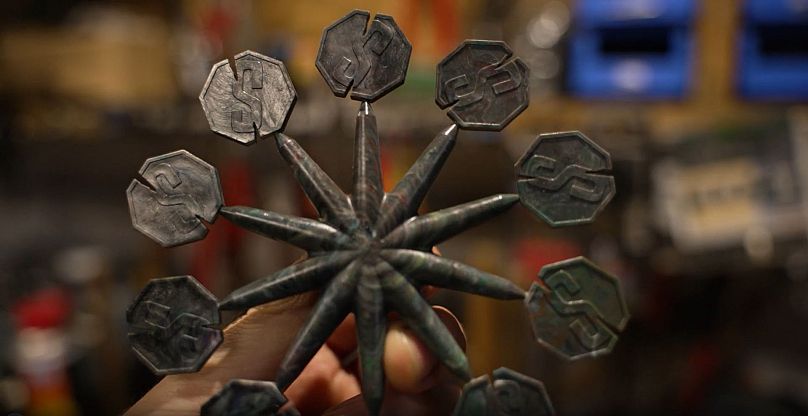"At Sauvage, we are not limited to one idea. We can also innovate. We try, we experiment. It's an everlasting quest to improve the quality of what we do."
SCENES shines a spotlight on youth around the world that are breaking down barriers and creating change. The character-driven short films will inspire and amaze, as these young change-makers tell their remarkable stories.
Towering cliffs and white winding coasts are the stunning backdrop of the Mediterranean Sea. But, if you take a closer look, the surface of the glittering blue waters is littered with something sinister. Plastic bags, bottles, and food wrappers are swimming among the diverse marine life.
The United Nations Environment Programme estimates that about 64 million plastic particles per square kilometre are floating on the surface of the Mediterranean Sea, making it one of the most polluted regions.
Since 2017, Manu Laurin has been actively working to prevent the Mediterranean from becoming a sea of plastics, starting with an adventure.
"I decided to swim from Marseille to Toulon. I did 120 kilometres in two weeks, picking up all the trash I found floating or underwater," Manu tells SCENES.
Epic journey
Discarded plastics release a cocktail of chemicals into the water as they disintegrate, causing adverse effects on aquatic life and humans who consume seafood. Manu knew that such long-distance swims would help raise awareness of the problem.
"I was quite euphoric in the beginning, tired in the middle, very depressed on the tenth day. On this day, I saw too much trash," he admits.
By the end, Manu had collected 100 kilograms of trash. But while he celebrated the success of his expedition, an important question was brewing in his mind.
"What were we going to do with all this trash?" exclaimed Manu.
After the challenge, Manu established an association called Sauvage Méditerranée that transforms trash into eco-friendly treasures.
"The first product we came up with was bracelets. Then, we thought that we might as well develop a jewellery range. We did earrings with recycled plastic, necklaces with polished glass," Manu explains.
Giving unwanted plastic products a new lease of life is commonly known as upcycling. The method prolongs the life span of plastics, often discarded within minutes of a single use. In Europe, single-use plastics represent 70 per cent of all marine litter, according to the European Commission. Organisations like Sauvage Méditerranée strive to reduce these numbers by creating creative products such as decorative ornaments and competition trophies.
"The idea is to offer something beautiful, but that also has a certain value," Manu explains.
Valuable trash
Adélaïde Ronceret is the head of production at Sauvage Méditerranée and is responsible for creating designs that appeal to customers. Once the designs are finalised, the team moves through the production process. First, they wash the plastic trash using an improvised pedal-powered washing machine. Once cleaned, dried and sorted by material and colour, the plastic is broken down in a grinder, then melted in a repurposed pizza oven and finally cut up into various shapes.
"We really built the workshop from A to Z from materials gathered from neighbours before they threw them out," Manu shares, attesting to their commitment to reducing and repurposing trash.
Since its founding, Sauvage Méditerranée has amassed many loyal customers and collaborators, all like-minded in their eco-conscious goals. Around 30 cleanup initiatives across southern France hand over the plastic trash they collect to Sauvage Méditerranée.
"We partnered with Sauvage Méditerranée from the very beginning. They've been picking up our bottle tops for seven years," recalls Clean My Calanques founder Eric Akopian, "I really love their brand. I am a big fan."
Sauvage currency
Eric was impressed by the launch of Sauvage currency. The coins are made out of discarded plastic.
"They created the Sauvage currency to reward people. Each time people come to our pick-ups, we give them Sauvage coins," Eric explains.
The coins are minted at the Sauvage workshop using a unique mould. As a concept, it works like any other currency that allows you to purchase products.
"For this, we had to build a network of businesses that would accept this money," Manu says.
The Sauvage currency is the first of its kind in France. Manu hopes that more and more retailers will trade in Sauvage currency, ensuring the success of upcycling trash into something valuable.
"At Sauvage, we are not limited to one idea. We can also innovate. We try, we experiment. It's an everlasting quest to improve the quality of what we do," Manu says proudly.
Manu dreams of expanding to a much bigger workshop and perhaps a futuristic one that is eco-conceived from marine debris. He hopes Sauvage Méditerranée's efforts will encourage more companies to work towards saving the environment and protecting the planet.













